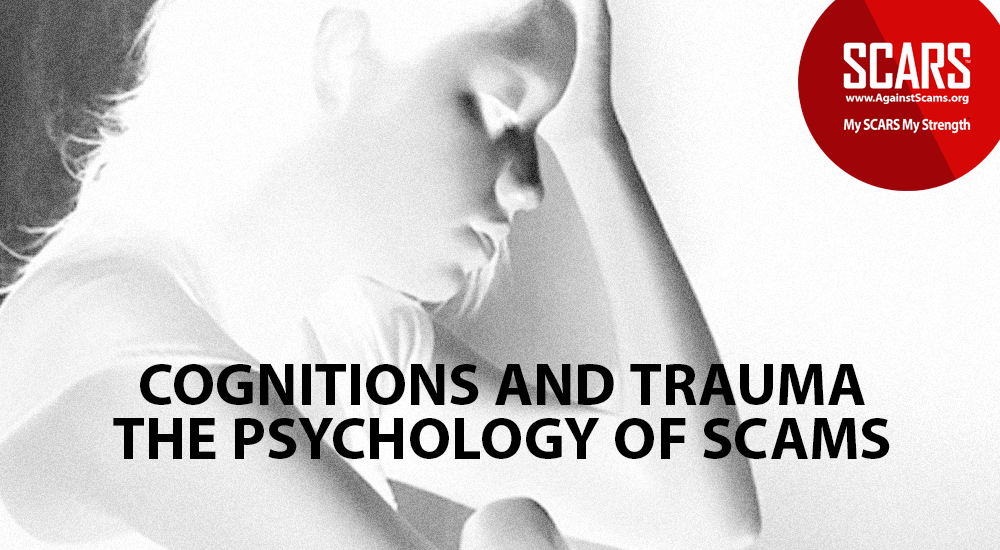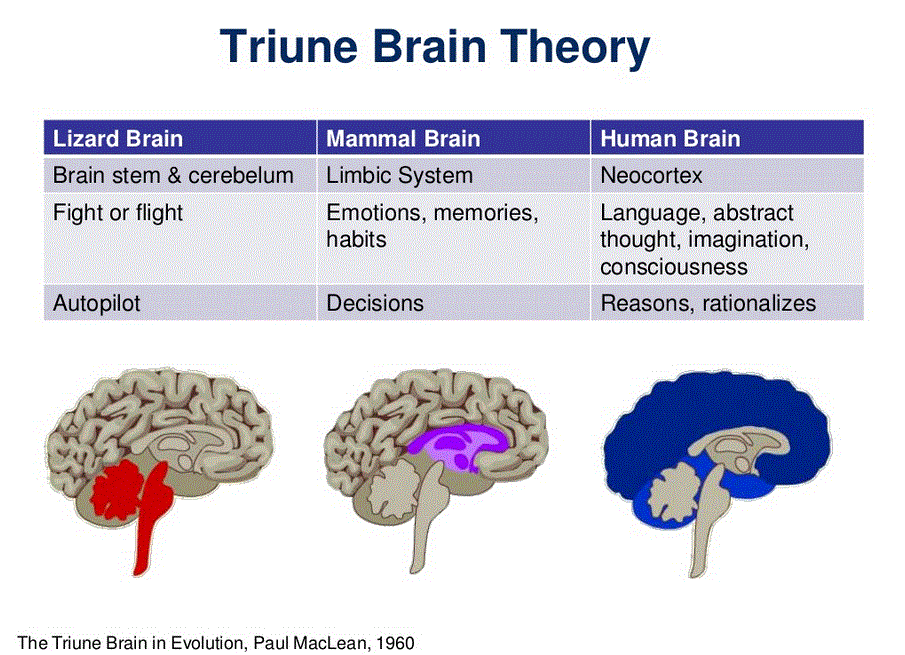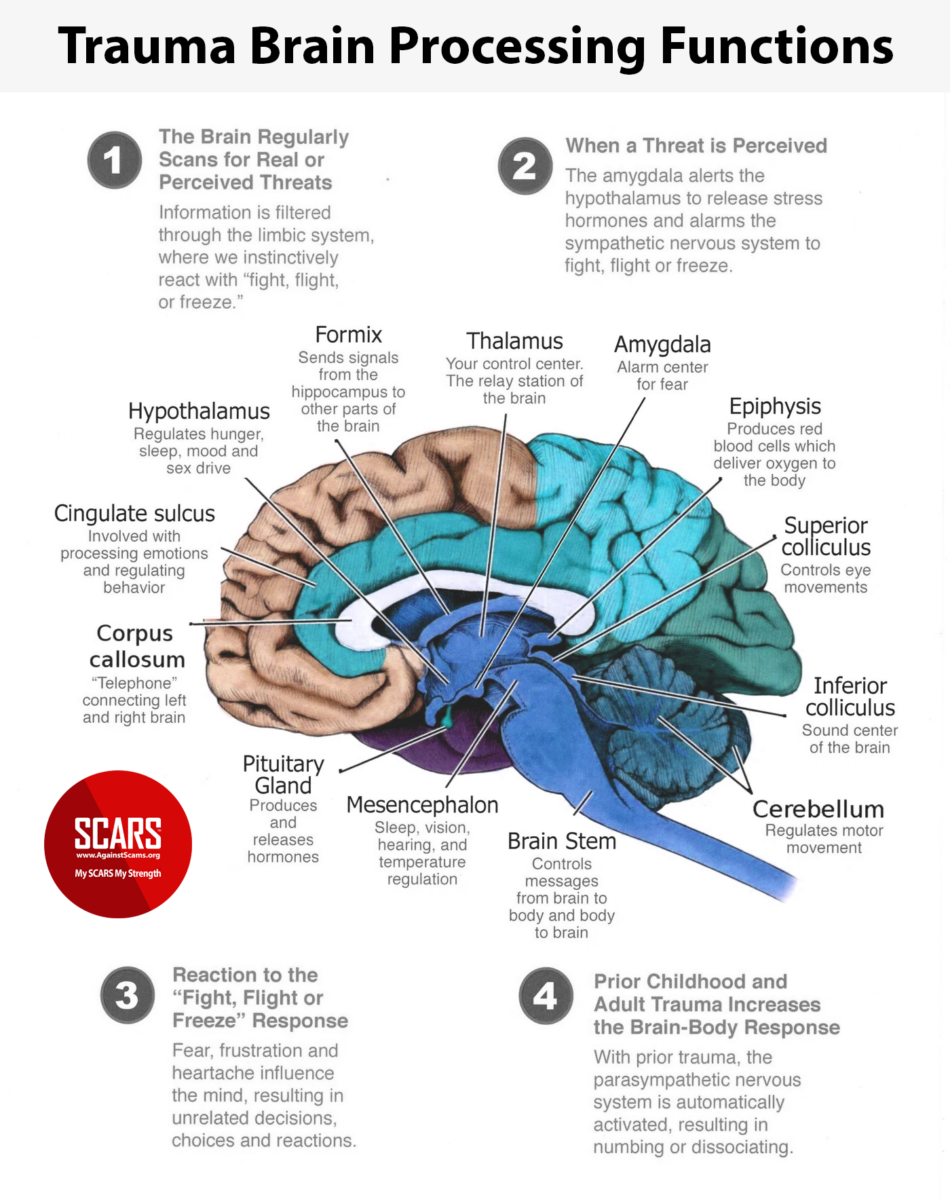Cognitions and Trauma – The Psychology of Scams
Traumatic experiences can affect and alter cognition for scam victims.
From the outset, trauma challenges the just-world or core life assumptions that help individuals navigate daily life. For example, it would be difficult to leave the house in the morning if you believed that the world was not safe, that all people are dangerous, or that life holds no promise. The belief that one’s efforts and intentions can protect oneself from bad things makes it less likely for an individual to perceive personal vulnerability. However, traumatic events—particularly if they are unexpected—can challenge such beliefs.
The following examples reflect some of the types of cognitive or thought-process changes that can occur in response to traumatic stress – such as from a romance scam.
COGNITIVE ERRORS:
Misinterpreting a current situation as dangerous because it resembles, even remotely, a previous trauma (e.g., overreacting to an overturned canoe in 8 inches of water, as if she and her paddle companion would drown, due to her previous experience of nearly drowning in a rip current 5 years earlier).
In the case of relationship scams, this can be overreacting to another’s concern because the scammer was also very attentive. Or jumping to a conclusion and calling other scammers because of an emotional reaction.
EXCESSIVE OR INAPPROPRIATE GUILT:
Attempting to make sense cognitively and gain control over a traumatic experience by assuming responsibility or possessing survivor’s guilt, because others who experienced the same trauma did not survive it.
Guilt can also come from not being as badly harmed in a lasting relationship scam – meaning not as financially damaged as others. Or the case where the victim feels that they have been much more traumatized than others.
IDEALIZATION:
Demonstrating inaccurate rationalizations, idealizations, or justifications of the perpetrator’s behavior, particularly if the perpetrator is or was a caregiver. Other similar reactions mirror idealization; traumatic bonding is an emotional attachment that develops (in part to secure survival) between perpetrators who engage in interpersonal trauma and their victims, and Stockholm syndrome involves compassion and loyalty toward hostage-takers.
This manifests in scam victims because they developed an emotional relationship with the scammer. Many victims express anger and hate towards the scammer in conversation with others but still have a lingering affection for the scammer long after the scam ends.
TRAUMA-INDUCED HALLUCINATIONS OR DELUSIONS:
Experiencing hallucinations and delusions that, although they are biological in origin, contain cognitions that are congruent with trauma content (e.g., a woman believes that a person stepping onto her bus is her father, who had sexually abused her repeatedly as a child because he wore shoes similar to those her father once wore).
This actually happens to scam victims too, where they see a person that looks similar to the stolen face impersonated by the scammer. This can resolve in feelings of longing or the opposite of fear or terror. Some victims report “hearing” words said by the scammer after the scam ends.
It is very common for traumatized scam victims to feel a manic need to act against scams. It becomes a compulsion. They create amateur anti-scam groups and focus themselves and others on the hate for scammers. All the while increasing their own trauma without being aware.
INTRUSIVE THOUGHTS AND MEMORIES:
Experiencing, without warning or desire, thoughts, and memories associated with the trauma.
These intrusive thoughts and memories can easily trigger strong emotional and behavioral reactions as if the trauma was recurring in the present. The intrusive thoughts and memories can come rapidly, referred to as flooding, and can be disruptive at the time of their occurrence. If an individual experiences a trigger, he or she may have an increase in intrusive thoughts and memories for a while.
For instance, individuals who inadvertently are retraumatized due to participation in anti-scam activities may have a surge of intrusive thoughts of the past trauma, thus making it difficult for them to discern what is happening now versus what happened then.
Whenever counseling or support focuses on trauma, it is likely that the client will experience some intrusive thoughts and memories too. It is important to develop coping strategies before, as much as possible, and during the delivery of trauma-informed support and trauma-specific treatment.
SCARS RECOMMENDS LOCAL TRAUMA COUNSELING FRO ALL RELATIONSHIP SCAM VICTIMS:
Regardless of your self-awareness, or perceived state, trauma is a ticking timebomb. A scam victim may think they are just fine, but months or years later it will have a significant impact on your emotional health and future relationship.
The failure of a scam victim to get counseling is not a sign of strength but of denial. Trauma counseling is not hard to find, though most counselors are not fully aware of this type of crime.
However, if they are a certified trauma counselor then they can focus on the impact and ignore the scam details – since those are not as important as the damage it caused. In fact, a victim that insists on talking about the details of a scam, such as the scammer’s dialog, the promises, or negligence is exhibiting typical signs of trauma that should be addressed through counseling. Inappropriate focus is a clear sign of trauma and the need for real care.
DISCLAIMER
Remember that SCARS is a professional crime victims’ assistance organization relying on our team’s 30 years of experience, and our experience with over 5 million scam victims. To learn more about what SCARS is and who are its leadership visit www.AgainstScams.org
We are not a mental health care provider. We do not provide counseling or therapy. We refer you to certified trauma counselors or therapists for that.
We are not responsible for your failure to seek appropriate care.
The information that we present about the psychology of scams, trauma, and all factors associated with your emotional health are for “entertainment” purposes only (the lawyers say we have to say that).
We cannot fix you, only you can do that. We are just here as a guide to a path for recovery.
TAGS: SCARS, Trauma, Cognition & Trauma, Psychology of Scams, Understanding Scam Trauma, Recovery from Scams, Information About Scams, Anti-Scam, Scams, Scammers, Fraudsters, Cybercrime, Crybercriminals, Romance Scams, Scam Victims,
SCARS™ Team
Society of Citizens Against Relationship Scams Inc.
A Worldwide Crime Victims Assistance Nonprofit Organization
Visit: www.AgainstScams.org
Contact Us: Contact@AgainstScams.org
PLEASE SHARE OUR ARTICLES WITH YOUR FRIENDS & FAMILY
HELP OTHERS STAY SAFE ONLINE – YOUR KNOWLEDGE CAN MAKE THE DIFFERENCE!
The Latest SCARS Posts:
FIND MORE SCAM NEWS
«SCAMCRIME.COM»
JOIN US ON FACEBOOK
«CLICK HERE»
END
MORE INFORMATION
– – –
Tell us about your experiences with Romance Scammers in our
« Scams Discussion Forum on Facebook »
– – –
FAQ: How Do You Properly Report Scammers?
It is essential that law enforcement knows about scams & scammers, even though there is nothing (in most cases) that they can do.
Always report scams involving money lost or where you received money to:
- Local Police – ask them to take an “informational” police report – say you need it for your insurance
- U.S. State Police (if you live in the U.S.) – they will take the matter more seriously and provide you with more help than local police
- Your National Police or FBI « www.IC3.gov »
- The SCARS|CDN™ Cybercriminal Data Network – Worldwide Reporting Network on « www.Anyscam.com »
This helps your government understand the problem, and allows law enforcement to add scammers on watch lists worldwide.
– – –
To learn more about SCARS visit « www.AgainstScams.org »
Please be sure to report all scammers
on « www.Anyscam.com »
Disclaimer:
SCARS IS A DIGITAL PUBLISHER AND DOES NOT OFFER HEALTH OR MEDICAL ADVICE, LEGAL ADVICE, FINANCIAL ADVICE, OR SERVICES THAT SCARS IS NOT LICENSED OR REGISTERED TO PERFORM.
IF YOU’RE FACING A MEDICAL EMERGENCY, CALL YOUR LOCAL EMERGENCY SERVICES IMMEDIATELY, OR VISIT THE NEAREST EMERGENCY ROOM OR URGENT CARE CENTER. YOU SHOULD CONSULT YOUR HEALTHCARE PROVIDER BEFORE FOLLOWING ANY MEDICALLY RELATED INFORMATION PRESENTED ON OUR PAGES.
ALWAYS CONSULT A LICENSED ATTORNEY FOR ANY ADVICE REGARDING LEGAL MATTERS.
A LICENSED FINANCIAL OR TAX PROFESSIONAL SHOULD BE CONSULTED BEFORE ACTING ON ANY INFORMATION RELATING TO YOUR PERSONAL FINANCES OR TAX RELATED ISSUES AND INFORMATION.
This content and other material contained on the website, apps, newsletter, and products (“Content”), is general in nature and for informational purposes only and does not constitute medical, legal, or financial advice; the Content is not intended to be a substitute for licensed or regulated professional advice. Always consult your doctor or other qualified healthcare provider, lawyer, financial, or tax professional with any questions you may have regarding the educational information contained herein. SCARS makes no guarantees about the efficacy of information described on or in SCARS’ Content. The information contained is subject to change and is not intended to cover all possible situations or effects. SCARS does not recommend or endorse any specific professional or care provider, product, service, or other information that may be mentioned in SCARS’ websites, apps, and Content unless explicitly identified as such.
The disclaimers herein are provided on this page for ease of reference. These disclaimers supplement and are a part of SCARS’ website’s Terms of Use.
Legal Notices:
All original content is Copyright © 1991 – 2020 Society of Citizens Against Relationship Scams Inc. (D.B.A SCARS) All Rights Reserved Worldwide & Webwide. Third-party copyrights acknowledge.
SCARS, SCARS|INTERNATIONAL, SCARS, SCARS|SUPPORT, SCARS, RSN, Romance Scams Now, SCARS|INTERNATION, SCARS|WORLDWIDE, SCARS|GLOBAL, SCARS, Society of Citizens Against Relationship Scams, Society of Citizens Against Romance Scams, SCARS|ANYSCAM, Project Anyscam, Anyscam, SCARS|GOFCH, GOFCH, SCARS|CHINA, SCARS|CDN, SCARS|UK, SCARS|LATINOAMERICA, SCARS|MEMBER, SCARS|VOLUNTEER, SCARS Cybercriminal Data Network, Cobalt Alert, Scam Victims Support Group, are all trademarks of Society of Citizens Against Relationship Scams Inc., All Rights Reserved Worldwide
Contact the law firm for the Society of Citizens Against Relationship Scams Incorporated by email at legal@AgainstScams.org













Leave A Comment